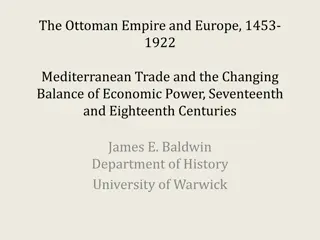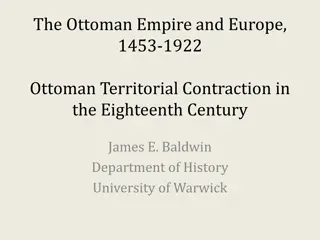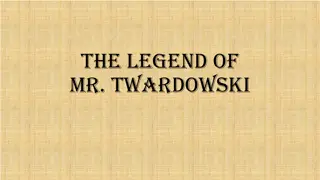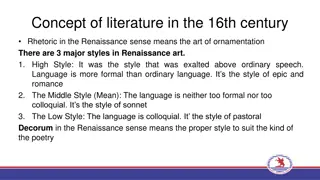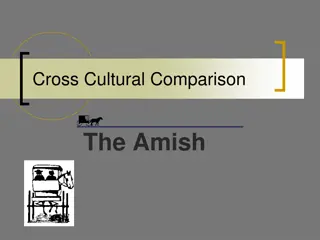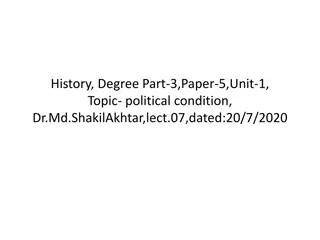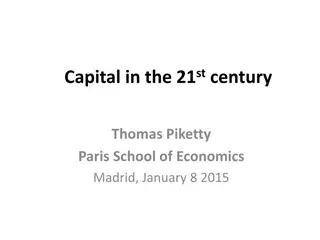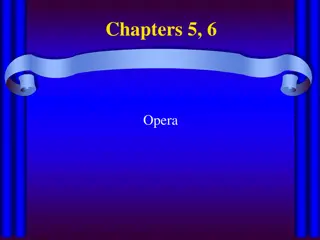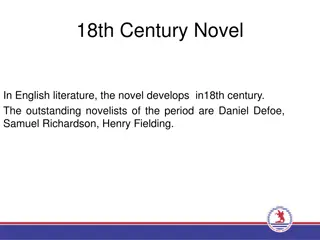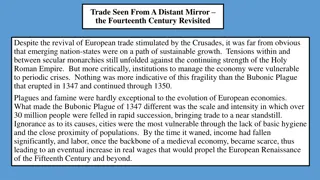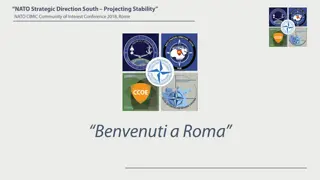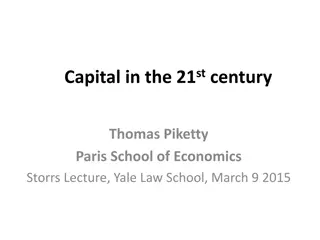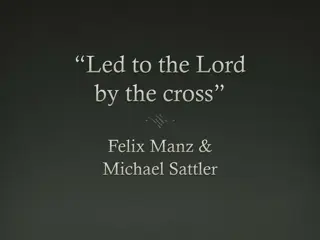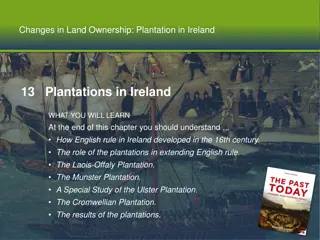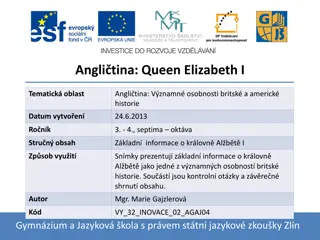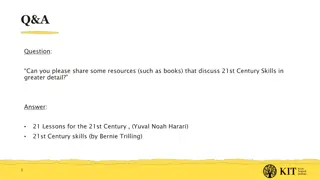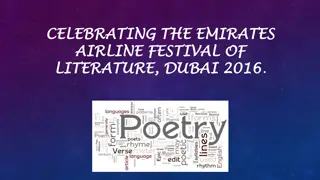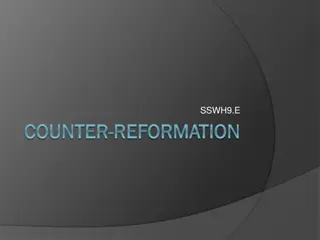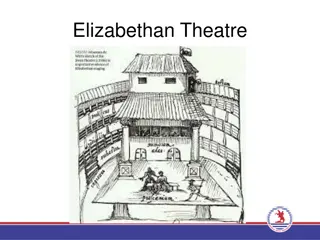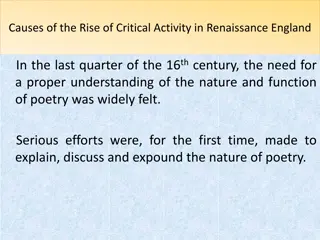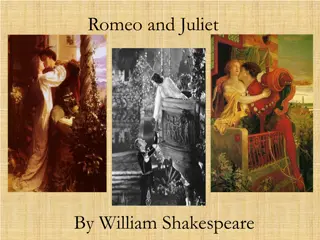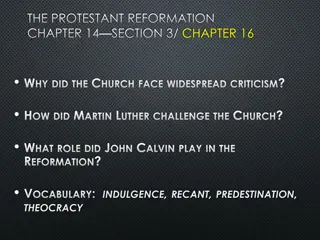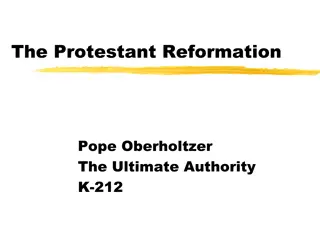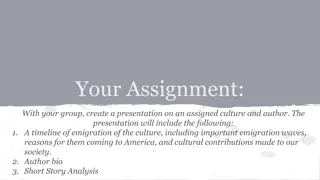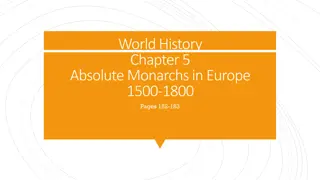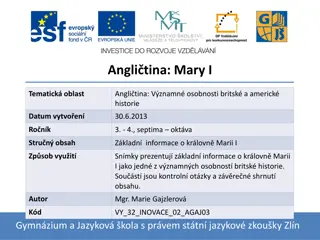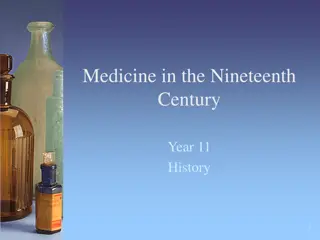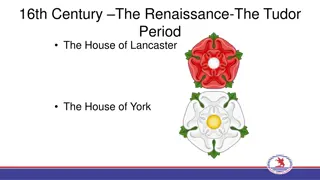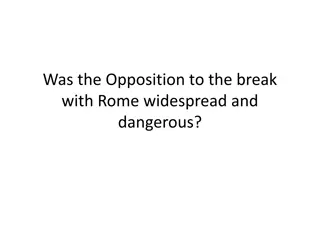Class Group Mastery Adapting to 21st Century Learning
The traditional image of a classroom \u2013 rows of desks facing a teacher dispensing knowledge \u2013 is increasingly incompatible with the realities of modern learning. The 21st century demands critical thinkers, collaborators, and innovators, requiring a fundamental shift in how we approach educa
3 views • 3 slides
The Ottoman Empire and Europe, 1453-1922
The interaction between the Ottoman Empire and European powers, including the Habsburgs, Safavids, Mamluks, and Russia, shaped the geopolitical landscape of the 16th century. This period saw Ottoman expansion, clashes between different empires, and complex motivations behind territorial conquests, i
0 views • 16 slides
READ [PDF] Her Viking Dragon Warrior (Viking Ancestors: Age of Embers Book 2)
14 minutes ago - COPY LINK TO DOWNLOAD = http:\/\/cupangbalapmope.blogspot.com\/?cread=B0CNQP49V8 | PDF\/READ Her Viking Dragon Warrior (Viking Ancestors: Age of Embers Book 2) | After awakening in 16th century Scotland, Kay must face a new world of old mystic beliefs, supernatural beings, and her
0 views • 4 slides
Ottoman-European Economic Relations and Mercantilism in the 16th Century
The Ottoman Empire and Europe traded various goods in the 16th century, with a negative trade balance favoring the Ottomans. Institutional innovations like the Joint-Stock Company and the Levant Company emerged to facilitate trade and secure better terms. Mercantilist policies were implemented to re
2 views • 15 slides
The Protestant Reformation: Martin Luther and Key Points of Lutheranism
The Protestant Reformation led by Martin Luther in Germany during the 16th century was a religious movement that challenged the authority of the Catholic Church, giving rise to Protestant Churches. Luther's 95 Theses criticized the sale of indulgences and initiated reforms. Key causes included cleri
5 views • 16 slides
Ottoman Empire Territorial Contraction in the 18th Century
Ottoman Empire faced agricultural and fiscal crises in the 17th century, leading to internal rebellions. However, by the mid-17th century, the empire had recovered and experienced further expansion, albeit at a slower rate compared to the previous century. In the 18th century, the Ottomans suffered
2 views • 12 slides
Evolution of Akbar's Religious Policy: A Historical Overview
In the 16th century, Akbar the Great implemented a revolutionary religious policy in the Mughal Empire. Initially a devout Sunni Muslim, Akbar evolved his stance to promote harmony and equality among all religions, fostering tolerance and understanding. This shift marked a significant departure from
1 views • 25 slides
Evolution of Microscopes: From Reading Stones to Phase-Contrast Microscopy
The history of microscopes dates back to the 11th century with the invention of the reading stone, leading to the creation of wearable eyeglasses in the 13th century. The first microscope was developed in the late 16th century by Zacharias Jansen, paving the way for the compound microscope and the t
0 views • 17 slides
The Legend of Mr. Twardowski: A 16th-Century Nobleman and His Encounter with the Devil
Legend tells the story of Jan Twardowski, a 16th-century nobleman in Cracow who delved into magic and alchemy. After summoning the devil and making a pact, Twardowski used his newfound magic to heal people but faced a battle for his soul. Ultimately, he was saved by his prayers and now resides on th
1 views • 6 slides
Literature in the 16th Century: Styles, Patronage, and Poetry Traditions
Explore the concept of literature in the 16th century, focusing on rhetoric in the Renaissance, major styles in art, the role of courtiers and patrons, poetic traditions like heroic, Ovidian, pastoral, and sonnet, and delve into the analysis of Sir Thomas Wyatt the Elder's poem "The Long Love that i
0 views • 4 slides
Understanding the Amish: A Cross-Cultural Comparison
Cross-cultural studies involving the Amish explore their origins as descendants of 16th-century Anabaptists, their unique religious beliefs, and customs. Learn about the importance of avoiding ethnocentrism and making generalizations when studying different cultures. Delve into the Amish community's
0 views • 33 slides
Political Turmoil in Pre-Babur India
Babur, a Turkic ruler, seized power in India in the early 16th century amidst a chaotic political landscape. With weak rulers in Delhi and conflicting powers across the subcontinent, Babur's successful invasion marked a significant shift in Indian history, leading to far-reaching consequences.
0 views • 8 slides
Global Analysis of Income and Wealth Inequality Trends Since the 18th Century
Presentation based on "Capital in the 21st Century" by Thomas Piketty, exploring income and wealth distribution dynamics from the 18th century across 20+ countries. The focus is on shifting from rising income inequality to rising wealth inequality, analyzing the long-term evolution of capital/income
0 views • 54 slides
Evolution of Opera: From Italian Camerata to Monteverdi and Purcell
Opera originated in late 16th century Italy, influenced by Greek tragedies and quickly gained popularity among aristocracy and general public by the mid-17th century. Baroque culture combined elements of literature, visual art, and music to create opera. The text in opera is vital for storytelling,
1 views • 14 slides
Evolution of the 18th Century English Novel
The 18th century marked a significant evolution in English literature, particularly seen in the development of the novel. Key novelists of this period include Daniel Defoe, Samuel Richardson, and Henry Fielding. Their works, such as Robinson Crusoe, Pamela, and Tom Jones, epitomize the various style
0 views • 11 slides
Challenges and Triumphs of European Trade in the Fourteenth Century
Despite the revitalization of European trade due to the Crusades, emerging nation-states faced obstacles to sustainable growth in the fourteenth century. The era was marked by tensions within monarchies, vulnerability of economic institutions to crises like the Bubonic Plague, and conflicts such as
1 views • 16 slides
NDC Conference Agenda: 14th-16th May
Detailed agenda for the NDC conference from 14th to 16th May includes key speeches, syndicate work sessions, coffee breaks, and networking events. The event spans across three days with a mix of presentations, group activities, and wrap-up sessions, offering a comprehensive program for attendees.
0 views • 5 slides
Dynamics of Income and Wealth Inequality in the 21st Century
French economist Thomas Piketty discusses the global dynamics of income and wealth distribution since the 18th century in his presentation, highlighting the shift from rising income inequality to rising wealth inequality. He delves into the long-term evolution of capital/income ratios, wealth concen
0 views • 78 slides
Evolving Business Models in the 21st Century
Explore the shift from traditional 20th-century capitalism to the purpose-driven models of the 21st century. Understand the emphasis on stakeholder wellbeing, long-term value creation, and interconnected relationships with society and the environment. Discover the importance of acknowledging nested
0 views • 12 slides
The Radical Reformers: Felix Manz and Michael Sattler in 16th Century Switzerland
Led by their strong convictions, Felix Manz and Michael Sattler challenged the established norms of the Catholic Church during the Reformation in Switzerland. Manz, a former pastor under Zwingli, questioned infant baptism and advocated for a separate church, while Sattler, inspired by Luther, marrie
0 views • 29 slides
Oda Nobunaga: Unifier of Sengoku Era Japan
Oda Nobunaga, a prominent warlord of the 16th century, played a pivotal role in unifying Japan during the late Sengoku Era. By asserting control, eliminating the Ashikaga Shogunate, and reshaping economic and social structures, Nobunaga left a lasting impact on Japan's history.
1 views • 5 slides
Evolution of Entomology in India: A Historical Perspective
Entomology, the study of insects, has a rich history in India dating back to the 16th century. From the contributions of William Kirby to the establishment of organizations like the Bombay Natural History Society, this field has evolved significantly. Key figures such as J.G. Koenig and Professor Li
0 views • 10 slides
Plantations in Ireland: Development of English Rule in the 16th Century
Dive into the historical significance of plantations in Ireland during the 16th century, understanding how English rule evolved, the various plantations established like Laois-Offaly and Munster, the impact of Tudor efforts to conquer Ireland, and the reasons behind the failure of certain plantation
0 views • 25 slides
Queen Elizabeth I of England - A Brief Overview
Queen Elizabeth I of England, known as the Virgin Queen, ruled during the 16th century. She was the daughter of King Henry VIII and Anne Boleyn, and her reign saw England firmly establish as a Protestant country. Elizabeth I was a successful queen who controlled the political and religious landscape
0 views • 8 slides
Exploring 21st Century Skills in Detail
Discover resources such as books that delve into 21st-century skills like productivity, critical thinking, and self-organization. Gain insights on the importance of these skills in today's dynamic work environment, challenging traditional notions of productivity and age-related stereotypes. Embrace
0 views • 4 slides
Nabati Poetry: A Rich Tradition of Storytelling in the Emirates
Nabati poetry, an integral part of Emirati culture, dates back to the 16th century in Arabia. It serves as a significant means of storytelling, preserving historical events through its clear and direct style. Sheikh Mohammed, a notable Nabati poet, has contributed profoundly to this art form, infusi
0 views • 11 slides
Reformation and Counter-Reformation in the Catholic Church
Catholic rules during the Middle Ages granted immense power to the Pope, sparking dissent that led to the Protestant Reformation. The Counter-Reformation was the Catholic response to Protestant criticisms, leading to the Council of Trent in the mid-16th century to reaffirm Catholic doctrines and pra
0 views • 14 slides
Insights into Elizabethan Tragedy and Classical Influence in Drama
Explore the world of Elizabethan theatre, the influence of classic Latin drama, and the evolution of tragedy from the 16th century to modern times. Learn about the elements of tragedy, the shift in tragic heroes from kings to middle-class individuals, and key concepts like hamartia, nemesis, and cat
0 views • 7 slides
Causes of the Rise of Critical Activity in Renaissance England
In the last quarter of the 16th century, Renaissance England saw a surge in critical activity surrounding poetry. This was spurred by factors such as the medieval view of poetry, the appreciation of poetry in courtly circles, influence from the rediscovery of Aristotle's Poetics, and challenges pose
0 views • 6 slides
Explore the Intriguing Tale of Romeo and Juliet
A captivating story of forbidden love unfolds in "Romeo and Juliet," where two young lovers defy their feuding families in a tragic yet timeless tale. Set in 16th-century Verona, Italy, this Shakespearean masterpiece weaves themes of love, hate, and fate, transitioning from comedy to tragedy amidst
0 views • 11 slides
The Protestant Reformation and Its Impact on the Church
The Protestant Reformation was a period of religious upheaval in the 16th century, marked by criticism of the Roman Catholic Church's practices and beliefs. Martin Luther challenged the church by advocating salvation through faith alone and rejecting certain traditional practices. John Calvin emphas
0 views • 16 slides
Study English Programme at UL: Literature, Analysis, and Context
The English program at UL fosters critical and analytical skills through literature appreciation and exploration of social, cultural, and historical contexts. Students delve into literary analysis from the 16th century to modern times, with elective choices for personal interests. The curriculum cov
0 views • 5 slides
The Protestant Reformation and its Impact on Europe
The 16th-century Protestant Reformation was a result of humanism and intellectualism, challenging the authority of the Catholic Church. This movement led to a revolution in religious thought, shaped identities, and contributed to the development of modern democracy. Calls for reform from figures lik
0 views • 21 slides
Hispanic Immigration Timeline & Sandra Cisneros Influence
Explore the timeline of Hispanic immigration to America from the 16th century to the mid-20th century, highlighting significant events such as the Treaty of Guadalupe Hidalgo and the Bracero Program. Learn about the cultural contributions of Hispanics and delve into the author Sandra Cisneros and he
0 views • 18 slides
Absolute Monarchs in Europe: Philip II of Spain
Explore the reign of Philip II of Spain, a powerful absolute monarch during the 16th century. Discover how Philip's leadership, religious zeal, and aggressive policies shaped Spain's empire and European politics. Learn about Spain's wealth from American mines, military strength, and conflicts with P
0 views • 38 slides
Evolution of Thriller Genre: From Crime Retribution to Psychological Imbalance
The history of the thriller genre traces back to the 17th century with themes of crime retribution evolving into entertainment by the 19th century. Crime was viewed as a social problem in the late 20th century, leading to the emergence of detective and criminal noir styles. Psycho thriller narrative
0 views • 6 slides
Mary I of England - The Reign of Bloody Mary
Mary I, also known as Bloody Mary, was the Queen of England and Ireland in the 16th century. She was a significant figure in British history, aiming to restore Catholicism in England and marrying Philip II of Spain. Her reign was marked by the persecution of Protestants, leading to her infamous nick
0 views • 9 slides
Advancements in Medicine and Social Conditions in the Nineteenth Century
The nineteenth century marked a significant era in medical history with new cures, advancements, and improved social conditions. Progress in medical knowledge, understanding of disease causes, developments in surgery, and notable contributions from Pasteur, Koch, and Ehrlich transformed healthcare.
0 views • 33 slides
The Tudor Period: 16th Century Renaissance in England
In the 16th century, the Tudor period in England marked the end of the Wars of the Roses between the Houses of Lancaster and York. Henry VII became the first Tudor king after defeating Richard III. Subsequent rulers like Henry VIII and Elizabeth I influenced the country's political and religious lan
0 views • 14 slides
Opposition to the Break with Rome in 16th Century England
The opposition to the break with Rome during the reign of Henry VIII in 16th century England was notable, leading to executions of prominent figures like Sir Thomas More and Bishop John Fisher. Despite some limitation of overt opposition, the English people were deeply connected to the papacy. The s
0 views • 12 slides

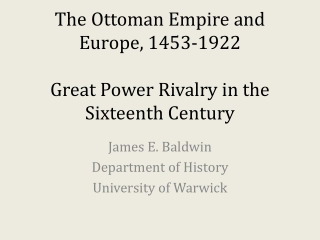
![READ [PDF] Her Viking Dragon Warrior (Viking Ancestors: Age of Embers Book 2)](/thumb/42246/read-pdf-her-viking-dragon-warrior-viking-ancestors-age-of-embers-book-2.jpg)
